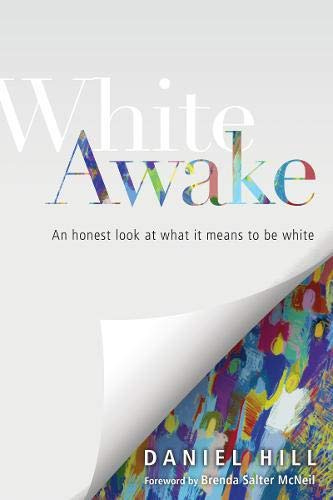Book Review: White Awake (Daniel Hill)
I'm just going to warn you as readers, that I have a whole series of book reviews coming up that explore issues of race and racism, because this is an area that I've been reading in, reflecting on, and getting educated in. I've tried to space these out for you. In particular, I am invested in the journey of what it means as a white person to be anti-racist in a way that is shaped profoundly by the gospel of Jesus Christ.
Alright, onto this week's book. It's called "White Awake", by Daniel Hill, founder and senior pastor of River City Community Church. It's part personal testimony, part introductory text. It's not a bad place to start in trying to navigate some of this terrain.
I had hesitations about this book, to be honest. Why would I want to listen to a white, very white, author talk about issues of race and the church. That is a good impulse, and it's one the author, Daniel Hill, puts up himself - why should he have written a book about this at all. His answer is - mentors who are people of colour kept suggesting to him and pushing him to do so. Their reason, and the reason I think this book is worth reading, is that it is helpful to hear a white person's journey in moving from total blindness about race issues and racism, to sight, and to anticipate many of the things that another white person will think and feel. I think it's important for white people to hear both the voices of other white people on this issue, but also (and significantly), people of colour (which you'll see from me in some other upcoming posts).
I also had hesitations about the name of this book, because it treads very close to 'woke', and I think that's a problematic term for several reasons from several perspectives. Hill actually talks about that in a second book, White Lies, which I'll get to talking about another time. Perhaps this was a marketing decision outside his power, but 'woke' is a term that triggers conservatives, and is misused by white liberals, so that itself is a bit of a shame, but we can look past it.
So, what is this book, what does it do, and why is worth reading? Really this book is about what it means and looks like to confront Whiteness, as a Christian. Hill takes us through the moment that shook him into an awareness of Whiteness, which led to initial searching. In chapter 1 he talks about "just how white my world was", with a little exercise that was set him: list his closest friends, his mentors, the thinkers he looked up to, and the authors of the books he was reading, and note their cultural backgrounds. His discovery: all white.
This is part of what it means to actually be white, it's to live in a white world where white is normalised, so that it's the default water you swim in, and you don't realise that that's the case.
Hill traces his own journey wonderfully. He talks about his earnest zeal to plant a multi-ethnic diverse church, and how it failed so hard, and the hard lessons he had to learn along the way. He gives some clear definitions of cultural identity, whiteness, privilege, ethnicity versus race, and so on, and critiques the idea of colourblindness, as an inadequate response to past and present racism.
Hill also maps out typical responses and stages, which are kind of like stages of grief - you might not experience them in this sequence, your own experience of each of them may differ, but it's very likely that you'll have moments of Encounter, Denial, Disorientation, Shame, and Self-Righteousness (these are also chapter titles). Each of these gives space for Hill to relate, with humility, his own experiences (and many failings), which in turn provides something of a roadmap for other white people.
For myself, this book helped me start raising questions to myself. Questions while I'll explore in some subsequent posts. In particular, part of the work I need to do is ask, "what does this look like in my own life, and in the context I live in, in Australia" Racial justice and reconciliation issues here are similar but different in important ways, not least because we do not have a history of trans-Atlantic slave trade, but we do have a history of genocide and enslavement of Australian First Nations people.
To return to Hill's book, though, let me end this review with one last appreciation. Hill consistently and constantly defers the question of "what am I supposed to do?" throughout the book and replaces it with "Listen". That, it seems to me, is a powerful lesson in and of itself. To listen, and to keep listening, and to keep making the conditions of genuine listening to the voices of the marginalised and oppressed, and not to even presume that we should move quickly to 'solving' problems. There is a time and place for that, but the call to action comes long after the call to listen.
So, as I finish this little review, let me encourage you to do your own listening. And stay with me here on this journey, because this is a set of conversations that it's taxing and tiring to stay in, and listen to. It's costly to hear the grief, pain, suffering, and injustices suffered by people of colour throughout history, but especially brothers and sisters in the faith, alongside the complicity and the denial of racism by white people, especially those who claim to love Jesus.



